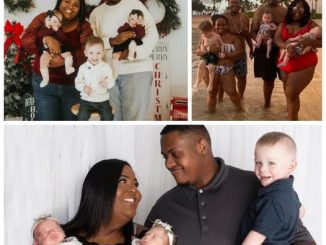
An orphan colt whose mother died shortly after giving birth has a new mom – a mare that had tragically lost her foal – thanks to the generosity of strangers and Washington State University veterinarians playing matchmaker.
Pairing an orphan foal and a nursing mare is a challenging task and one that commonly ends with failure. In this case, the connection was instantaneous.
“The mare had only been without a foal for about 24 hours,” Dr. Lisbeth Matthews, an equine medicine and surgery intern, said. “We walked her into the Veterinary Teaching Hospital and past him. He made a noise, and she went, ‘oh, there’s my foal,’ and started making noises back at him.”
It was a surprise to everyone how quickly the mare, named Shelly but affectionally called Mama by her owners, Roy and Faye Lions, accepted the colt. Equine veterinarian Jenifer Gold, who was helping to care for the foal and to supervise its introduction to the mare, said nursing mares frequently reject orphan foals, and when they don’t, the pairing process often takes days.
“She walked in and started nickering at him like it was her own baby – it was unbelievable,” Gold said. “I’ve been doing this for 20 years, and I have never seen it happen that way.”
The foal, which has been named Laredo, was admitted to the teaching hospital by his owner, Spokane resident Rachel Williams, just days after he was born when he started showing troubling digestive issues. Shortly after the colt arrived in Pullman, Faye Lions placed a call to WSU to see if the equine team was aware of any orphan colts needing a nursing mare.
“Our foal was dead, and nothing was going to bring it back, so we were hoping we could help someone else,” Faye Lions said. “It just so happened there was a foal there.”
A day later, the colt and Shelly were introduced.
“For them to be so willing to basically hand over their animal to a complete stranger after experiencing their own tragedy was pretty phenomenal,” Williams said. “I feel like in this scenario it was the worst of the worst for everybody, but there was a little bit of silver lining to the story.”
Williams is also grateful for the care and treatment she and her foal received at WSU.
“I just can’t even find words to say how great the veterinarians at WSU were,” she said. “They went above and beyond. I am just happy I ended up at WSU. I am so glad we were able to match those two up – it is kind of a miracle.”
Shelly will live with Williams until the colt is ready to be weaned, likely in six months, before she will return to her home in Kamiah, Idaho.
“It will be tough to say goodbye because you just naturally start to bond with animals, and she has kind of been my lifesaver,” Williams said. “It will be bittersweet for sure, but I am sure her owners will be happy to have her back.”
During the spring, the equine team at WSU typically sees at least a handful of orphan foals. Equine medicine specialist Dr. Macarena Sanz said orphan foals can be fed a powdered milk formula designed for horses, but those raised by humans typically develop behavioral issues that can become problematic as the animal matures.
“They turn out to be socially weird, have no understanding of personal space, and they are more difficult to train,” WSU equine veterinarian Macarena Sanz said. “The fact that this orphan foal has a mare is really going to make a difference.”
Sanz strongly encourages owners to immediately call their veterinarian if a foal is orphaned, as early care is critical to the animal’s survival.
Michael Douglas and Catherine Zeta-Jones: The Untold Story of Their Family and Kids
Michael Douglas and Catherine Zeta-Jones have been through a lot together. They’ve lived in both the US and Bermuda with their children, Dylan Douglas and Carys Zeta-Douglas, and have experienced many changes along the way.
Now, Dylan is an adult. At 20 years old, he has chosen his own path in life. Being the son of a famous Hollywood star, and the grandson of the legendary Kirk Douglas, brings a lot of pressure.
However, his parents made sure he had the best childhood possible, even moving away from Bermuda to support him.

Michael Douglas was born on September 25, 1944, in New Brunswick, New Jersey, to actor parents Diana and Kirk Douglas.
When Michael was six years old, his parents divorced, and he went to live with his mother. He only saw his father during holidays.
Growing up, Michael Douglas attended the Eaglebrook School in Massachusetts and later went to the elite Choate School.
Michael was introduced to the acting world at a young age. He spent summers with his father, Kirk, who was often shooting films. By his teenage years, Michael knew he wanted to be an actor and asked his father to help him find roles.
Kirk, however, didn’t think acting was right for his son because of the pressure and unpredictability of the industry. He didn’t want either of his sons in show business, but Michael couldn’t be stopped.

Michael Douglas decided to turn down studying at Yale University and instead moved to California.
“I grew up on the East Coast and was going to go to an Ivy League school, but at the last minute, I decided to be a hippie,” he explained. “There were protest movements about the war and peace movements at our university. It was a fantastic time.”
While studying at the University of California, Santa Barbara, he kept asking his father, Kirk, for help to get into the movie industry. In 1966, he landed his first role.
### Start of Acting Career
Michael Douglas made his debut in *Cast a Giant Shadow*, where his father also starred. He played an uncredited driver in the film.
“I was lucky to grow up watching how my father acted, along with stars like Tony Curtis, Burt Lancaster, and Frank Sinatra, who were often at our house,” Michael said on *The Talk*. “You see stars with their insecurities and how they behave, so I think that’s kept me grounded.”
Michael Douglas graduated with a bachelor’s degree in 1968 and decided to move back to the East Coast. This time, he settled in New York City, where he continued to pursue his career in film.

Michael Douglas studied at the American Place Theatre and later at the Neighborhood Playhouse. He landed some leading roles and spent time performing in off-Broadway productions.
### Academy Award Winner
Before his first film role, Michael Douglas had a small part in the television show *The F.B.I.* The producer, Quinn Martin, was impressed with him, and Douglas then got a role in the new police series *The Streets of San Francisco*. The show premiered in 1972 and became Douglas’s big breakthrough.
*The Streets of San Francisco* became one of ABC’s highest-rated programs in the mid-1970s, airing during prime time. Michael Douglas received three consecutive Emmy Award nominations for his performance. He also directed two episodes of the series, gaining experience in directing, which he would use later.
In 1975, Michael produced the classic film *One Flew Over the Cuckoo’s Nest*, which helped establish him as a top producer. The film won several Academy Awards, and Douglas himself won an Academy Award for Best Picture.
By this time, Douglas was a successful producer and director, and everyone wanted to work with him. He produced and starred in *The China Syndrome* (1979) alongside Jane Fonda. The movie received more Academy Award nominations and was named one of the best films of the year by the National Board of Review.
Michael Douglas went on to become a major Hollywood star with his performances as Gordon Gecko in *Wall Street* (1987), in *Falling Down* (1993), and *The Game* (1997).
### Michael Douglas – Catherine Zeta-Jones
During this time, he met his love, Catherine Zeta-Jones. Even before they met, he admired her talent.
“I was watching this movie and thought, ‘Wow, who is this girl? She’s incredible,’” Douglas remembered. He was watching a screening of her upcoming movie *The Mask of Zorro* at that moment.
The two stars met in 1996 at the Deauville Film Festival.
“I had been told Michael Douglas wanted to meet me,” Zeta-Jones said in a 2001 interview with Larry King. “I was a little nervous because I didn’t quite know what he wanted to meet me about.”
Michael Douglas knew right away that he had just met the love of his life.
However, Michael Douglas worried he had ruined any chance of a future with Catherine during their first meeting.
“I said to her after about half an hour, ‘You know, I’m going to be the father of your children,’” Douglas recalled on *The Jonathan Ross Show*, as quoted by E! News. “It sounded good, but she said, ‘You know, I’ve heard a lot about you and I’ve seen a lot about you, and I think it’s time I say goodnight.’”
### Married in 1999
Douglas and Zeta-Jones kept talking on the phone for about nine months and continued to enjoy dinners together. They eventually wondered why they weren’t officially together, so they decided to sit down and discuss it.
“He certainly didn’t want me as an ex-girlfriend on his list, and I certainly didn’t want ‘Michael Douglas’ as an ex-boyfriend on my list,” she said. “We looked at each other one day and said, ‘We’re having a lot of fun together.’”
Their romance blossomed. Despite the 25-year age difference, which attracted media attention, they didn’t care because their love was strong. On New Year’s Eve in 1999, Michael Douglas proposed to Catherine at his home in Aspen, Colorado.
“Both of us were sick as dogs because we had the flu,” Douglas recalled in 2016. Later that year, they got married.
“I don’t take any of this for granted,” Zeta-Jones told *People* during their wedding. “When I look at Michael, I run around like a little girl. I can’t believe I came into his life and he came into mine.”
### Dylan Douglas
Just months after their engagement, there were rumors that the couple was expecting a child. In August 2000, Dylan Douglas was born. He was Catherine Zeta-Jones’s first child and Michael Douglas’s second; his first son, Cameron, was born in 1978 to his former wife, Diandra Luker.
Catherine and Michael welcomed their second child, a daughter named Carys Zeta-Douglas, in 2003. Like any marriage, they faced ups and downs, but their love always prevailed.
Now, their children are all grown up, and Dylan Douglas has chosen a very different career from that of his parents. He seems to be quite the daredevil.
Dylan Douglas is now 20 years old and has already lived in several places.
### Dylan Douglas – Childhood
As a young child, Dylan and his family lived in Bermuda. Michael Douglas has strong ties to the islands because his mother is from there, and he spent many teenage summers there.
In 2001, when Dylan was just one year old, Michael and Catherine decided to move the family to Bermuda. Being two major celebrities, they believed it would be better for their children to grow up away from the spotlight, which can often be toxic.
Douglas and Zeta-Jones, who were living in New York City at the time, wanted their kids to have a safe and calm upbringing without the hassle of paparazzi.
In Bermuda, they felt people respected their privacy.
“Bermuda creates an environment for us away from the entertainment business and gives our kids independence and freedom where showbiz isn’t on everybody’s lips,” Douglas said, as quoted by the *Bermuda Sun*. “It’s a lovely, lovely place.”

However, the family only stayed on the island for eight years because Dylan was diagnosed with dyslexia.
### Dylan Douglas – Dyslexia
Dylan didn’t start reading until he was five years old. His parents, Michael Douglas and Catherine Zeta-Jones, decided it was best for him to attend a special school in New York. So, the Douglas family left Bermuda, and Dylan finally got the chance to show everyone what a great kid he was. He enrolled at the Windward School, which specializes in helping children with dyslexia.
Those years were very challenging for the Douglas family. Not only was Dylan’s half-brother Cameron sentenced to five years in prison, but Michael Douglas also found out that he had stage 4 tongue cancer. He went through chemotherapy and radiation therapy while Dylan was adjusting to his new school.
In the end, Michael Douglas successfully overcame his cancer treatment, and Dylan went on to enjoy school. During an emotional speech at a Windward School fundraiser, Dylan honored the school that helped him overcome his dyslexia and also talked about how his father’s cancer had affected his life.



Leave a Reply